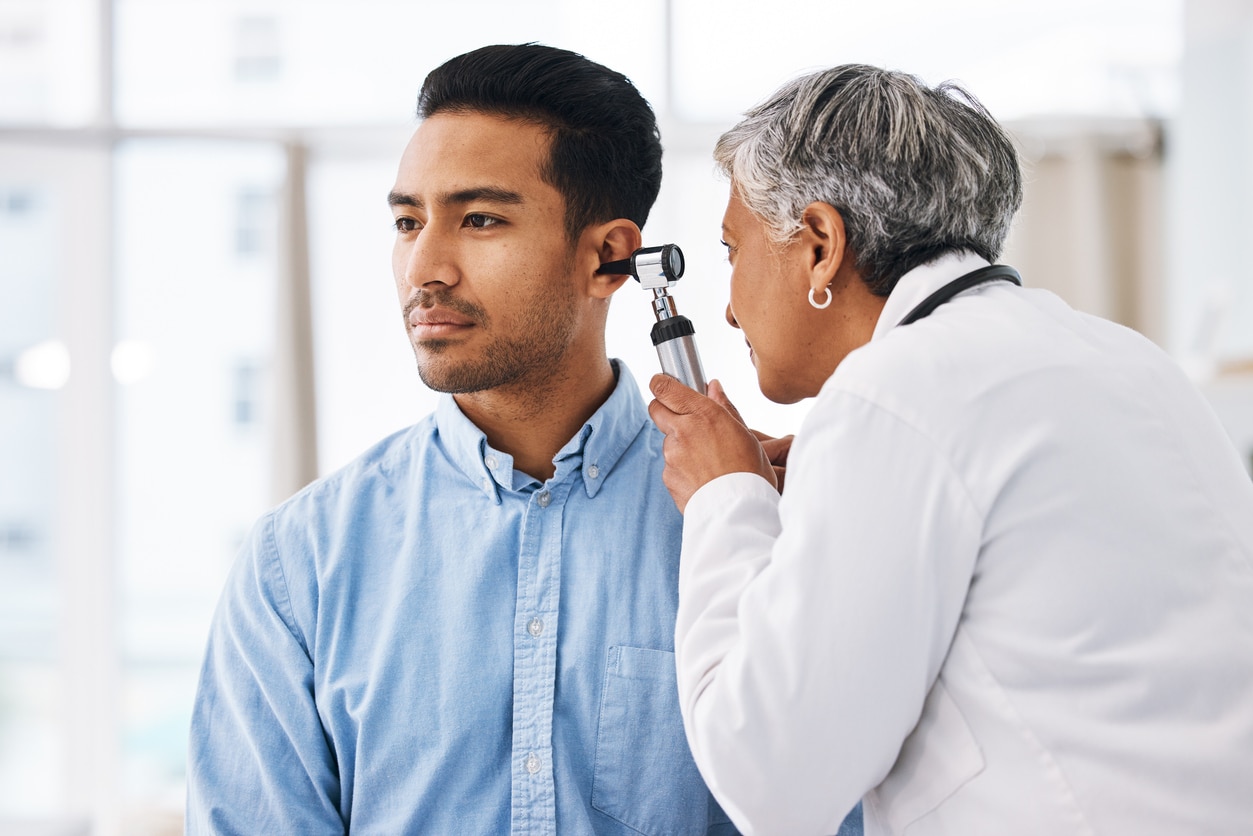Nearly 20% of the global population live with hearing loss, accounting for more than 1.5 billion people. Hearing loss can occur for many reasons, but some of the most common include hazardous noise exposure, aging and physical trauma to the ear canal.
Hazardous Noise Exposure

Hazardous noise exposure is one of the most common causes of hearing loss. When you are exposed to loud noise, the small hair cells in your ear responsible for transmitting sound get overworked, causing them to die or become damaged.
Avoiding damaging noise levels is imperative in the prevention of noise-induced hearing loss. The Centers for Disease Control defines the threshold for hearing loss to be any noise above 70 decibels (dB) for a prolonged period of time or above 120 dB instantly.
A decibel detector app or device can help you discern which sounds are too loud. If you do not have access to decibel detection, it can be helpful to make comparisons. For instance, a washing machine or dishwasher emits approximately 70 dB, whereas a dog barking in your ear or standing near sirens will expose you to 110-120 dB.
Aging
Age-related hearing loss, along with loud noise exposure, is one of the most common causes and the least preventable. Changes to the following locations are normally the cause of age-related hearing loss:
- The inner ear
- The middle ear
- Along the nerve pathways leading to the brain
Age-related hearing loss presents gradually and is often not noticeable at first. Symptoms such as trouble understanding high-pitched sounds, speech, TV or radio may begin to present themselves as you or your loved ones age. Because symptoms are often subtle at first, it is wise to get regular hearing tests for early detection.
Physical Trauma
Ear trauma from a blow to the head, such as during a friendly game of basketball in Rawson-Washington Park, can damage the middle and inner ear, resulting in potential hearing loss and tinnitus. While some injuries cannot be avoided, protecting your ears by wearing a helmet during high-risk activities can help prevent excessive damage.
These common causes make up a large percentage of hearing loss cases. While they cannot always be prevented, identifying your hearing loss and seeking treatment early on can help mitigate the adverse impact of the condition on your life.
For information on preventing or treating your hearing loss, contact Advanced Hearing today to make an appointment with one of our specialists.


